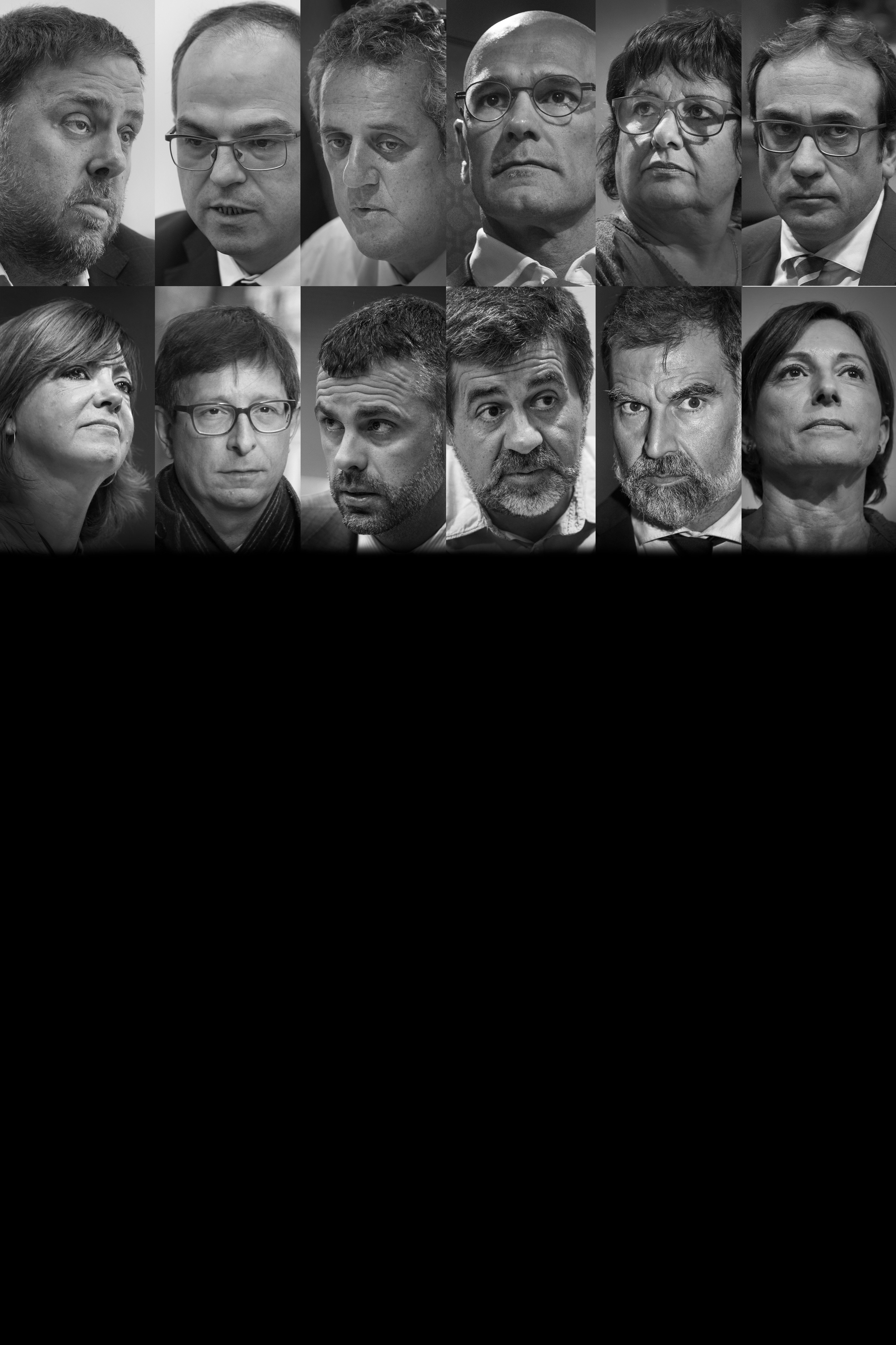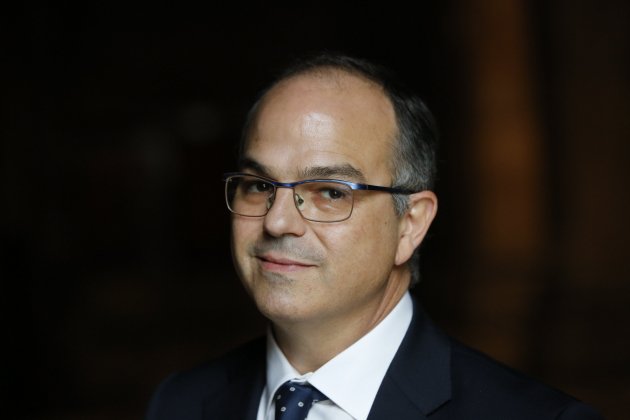This is part of El Nacional's complete primer on the Catalan independence trial. See also our FAQ, who's who of witnesses, timeline of how we got here and guide to what to expect now.
Twelve defendants, their eight defence lawyers, and seven prosecuting lawyers.
Fewer defence lawyers than defendants, because some lawyers represent more than one of the accused; but more prosecuting lawyers than might be expected, because there are three different prosecutions: that of the public prosecutor, plus a second prosecution from the state solicitor and a private prosecution undertaken by the right-wing Vox political party.
Twelve, eight and seven: these will be the key courtroom actors in the Catalan independence trial, along with the seven presiding judges, six men and one woman.
Who are the twelve defendants?
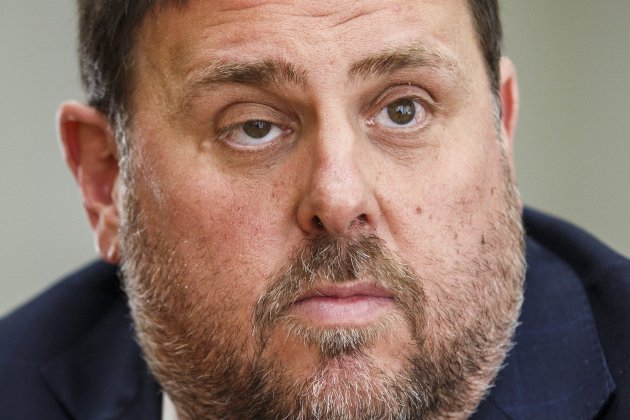
Oriol Junqueras
Catalan vice-president and economy minister
Defence lawyer: Andreu Van den Eynde
Accusations and sentences demanded
Public prosecutor: Rebellion, misuse of public funds. 25 years' jail.
State solicitor: Sedition, misuse of public funds. 12 years' jail.
Vox: Rebellion, criminal conspiracy, misuse of public funds. 74 years' jail.
Prosecutors' arguments:
Oriol Junqueras is, in the absence of Carles Puigdemont, the visible head of the Catalan government that held the referendum and declared Catalonia's independence. Alleged to be the main proponent of the process within the government, Junqueras had ultimate responsibility for the preparation and execution of the 1-O (a task that was coordinated by his number two, Josep Maria Jové) and, according to the prosecutions, he decided to carry on despite the security risks advised by the Catalan Mossos police. At the proposal of his department (which is accused in the prosecutors' indictment of covering up the referendum expenses), the necessary rules and planning for the 1st October referendum were approved. In addition, with Puigdemont, he sent a letter to all local mayors of Catalonia asking them to make voting centres available for the referendum and to stop sending their declarations to the Spanish tax department.
Jordi Turull
Minister of the presidency
Defence lawyer: Jordi Pina
Accusations and sentences demanded
Public prosecutor: Rebellion, misuse of public funds. 16 years' jail.
State solicitor: Sedition, misuse of public funds. 11 years and 6 months' jail.
Vox: Rebellion, criminal conspiracy, misuse of public funds. 74 years' jail.
Prosecutors' arguments:
Responsible for the presidency ministry, which managed the institutional publicity strategy for the referendum, allegedly paid for with public funds. With other ministers, he authorized contracting for the referendum and controlled the Telecommunications and Information Technology Centre (CTTI), essential in the referendum logistics and for the creation of websites (some duplicated to make police action difficult) and computer programs required to carry out the referendum.
In 2018, after the judicial prohibition on the Catalan Parliament's attempts to vote on the appointment of first the exiled Puigdemont and then the imprisoned Jordi Sànchez as new Catalan president, Turull also became a candidate for president, but did not succeed on the first ballot. A day later, on March 23rd, he was ordered to return to prison and was prosecuted.
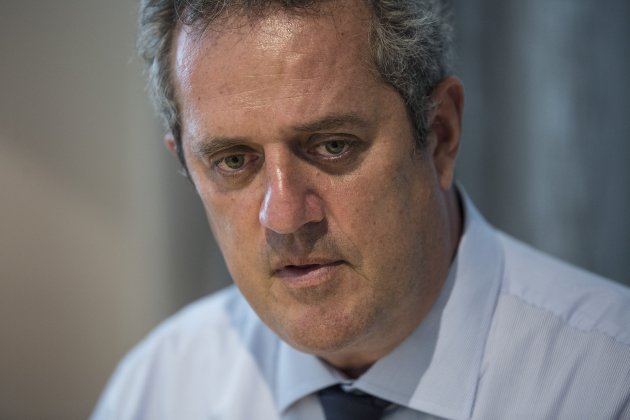
Joaquim Forn
Interior minister
Defence lawyer: Xavier Melero
Accusations and sentences demanded
Public prosecutor: Rebellion, misuse of public funds. 16 years' jail.
State solicitor: Sedition, misuse of public funds. 11 years and 6 months' jail.
Vox: Rebellion, criminal conspiracy, misuse of public funds. 74 years' jail.
Prosecutors' arguments:
Catalan interior minister and responsible for the law and order policies carried out by the Catalan Mossos d'Esquadra police. Like Junqueras, he has been in prison since November 2nd, 2017, and together with the vice president, he is accused of giving the Mossos the order to press on with the referendum despite the potential security risks, and encouraging the Catalan public to go and vote in large numbers.
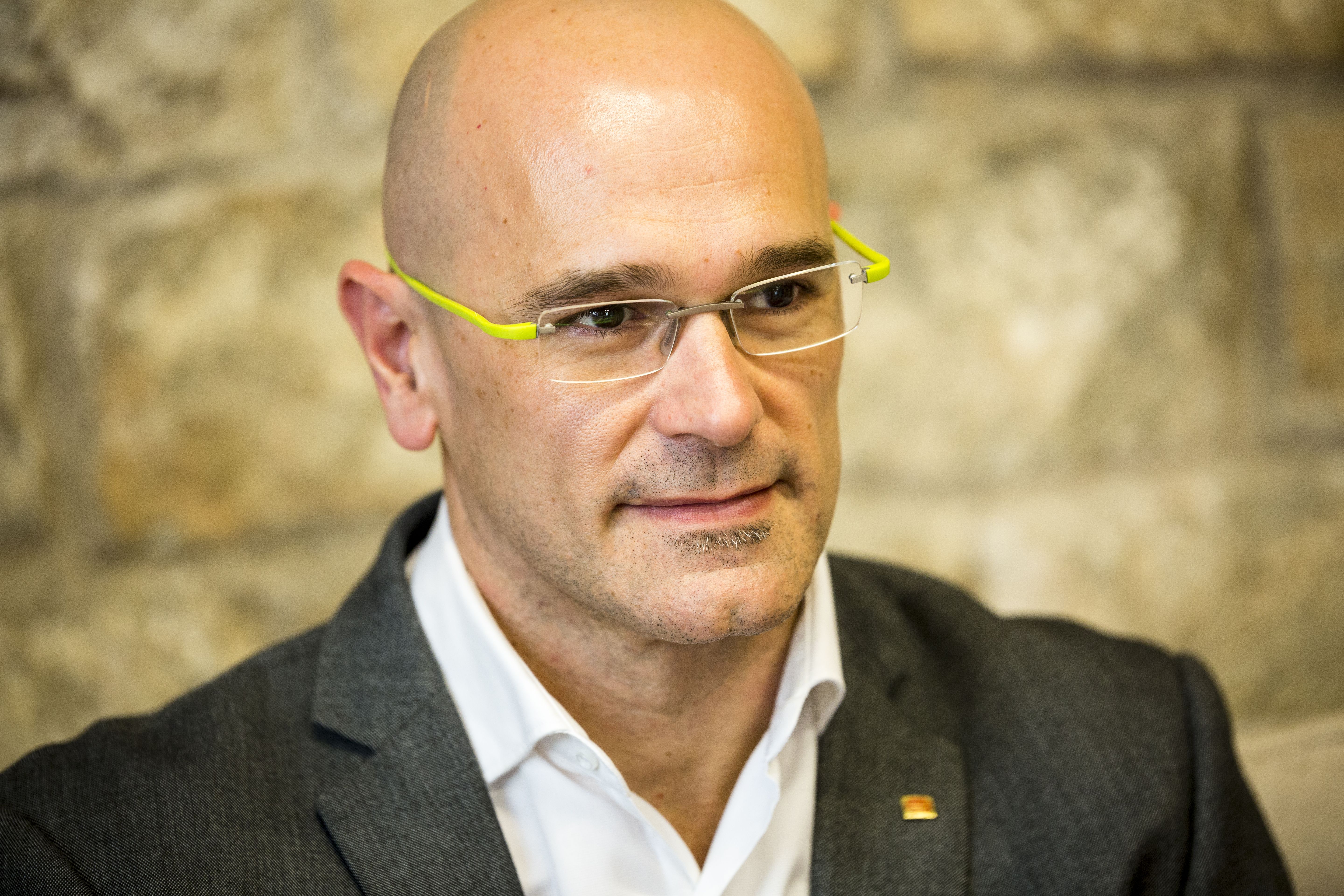
Raül Romeva
Foreign minister
Defence lawyer: Andreu Van den Eynde
Accusations and sentences demanded
Public prosecutor: Rebellion, misuse of public funds. 16 years' jail.
State solicitor: Sedition, misuse of public funds. 11 years and 6 months' jail.
Vox: Rebellion, criminal conspiracy, misuse of public funds. 74 years' jail.
Prosecutors' arguments:
Romeva was in charge of the government's foreign strategy aimed at winning legitimacy for the process internationally. He directed the Public Diplomacy Council of Catalonia (Diplocat), a "type of diplomatic corps parallel to that of the state", which according to the public prosecutor, acted as a lobby for the process abroad. Under his direction, Catalan offices abroad were created, international websites were built to provide information about the referendum, an international image campaign for the Catalan government was held and international observers for the referendum were organized. In 2017, the budget allocation of his ministry increased by 107%.
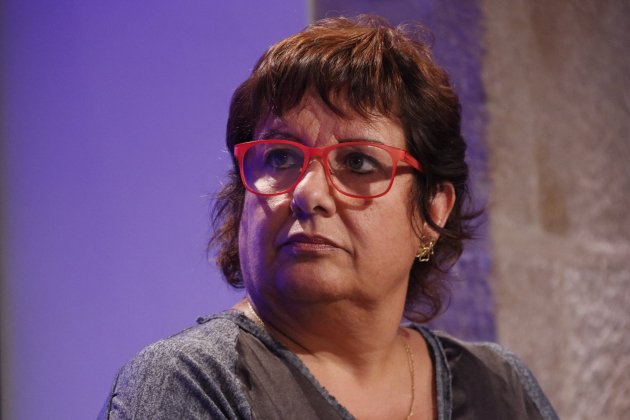
Dolors Bassa
Minister of labour, social affairs and family
Defence lawyer: Mariano Bergés
Accusations and sentences demanded
Public prosecutor: Rebellion, misuse of public funds. 16 years' jail.
State solicitor: Sedition, misuse of public funds. 11 years and 6 months' jail.
Vox: Rebellion, criminal conspiracy, misuse of public funds. 74 years' jail.
Prosecutors' arguments:
Bassa allegedly cancelled the powers that her departmental officials had over the the referendum voting centres in order to ensure the centres' availability on the day of the vote, and also developed a volunteer base and encouraged participation.
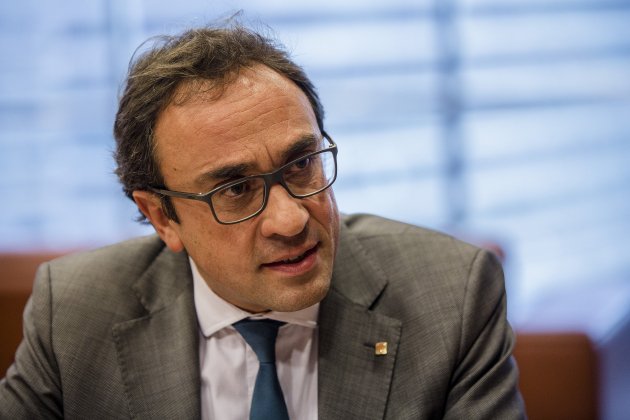
Josep Rull
Regional minister
Defence lawyer: Jordi Pina
Accusations and sentences demanded
Public prosecutor: Rebellion, misuse of public funds. 16 years' jail.
State solicitor: Sedition, misuse of public funds. 11 years and 6 months' jail.
Vox: Rebellion, criminal conspiracy, misuse of public funds. 74 years' jail.
Prosecutors' arguments:
Like Turull, he spent one month in prison at the end of 2017, and then in March 2018 was ordered to return to custody. In addition "to encouraging citizens to vote on 1st October despite being aware that it was illegal and that there were security risks," as regional minister he "arbitrarily" prohibited a ship transporting police from docking at Palamós on the Costa Brava.
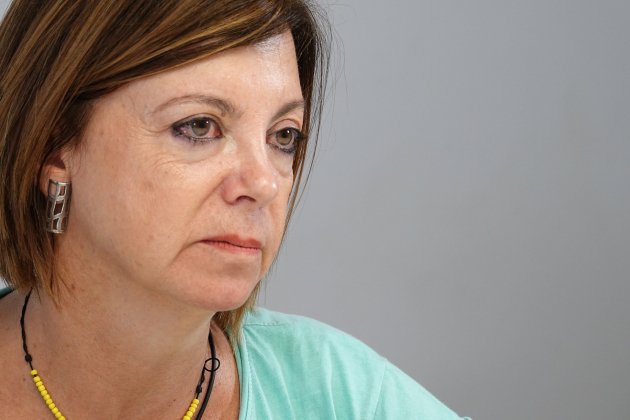
Meritxell Borràs
Governance minister
Defence lawyer: Xavier Melero
Accusations and sentences demanded
Public prosecutor: Disobedience, misuse of public funds. 7 years' jail, 30,000 euro fine.
State solicitor: Disobedience, misuse of public funds. 7 years' jail.
Vox: Disobedience, criminal conspiracy, misuse of public funds. 24 years' jail.
Prosecutors' arguments:
Borràs along with the other members of the government made the decisions to carry out and organize the referendum, disobeying judicial orders and using public funds illegitimately for this purpose.
Borràs, Mundó and Vila are the only ones of the 12 defendants who are currently free on bail. Borràs was in prison for about a month, until December 2017.
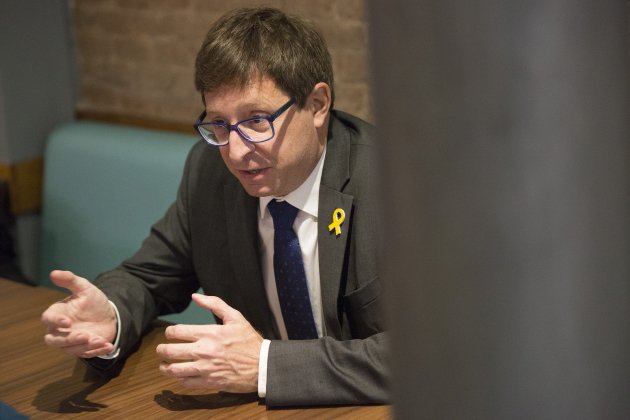
Carles Mundó
Justice minister
Defence lawyer: Josep Riba
Accusations and sentences demanded
Public prosecutor: Disobedience, misuse of public funds. 7 years' jail and 30,000 euro fine.
State solicitor: Disobedience, misuse of public funds. 7 years' jail.
Vox: Disobedience, criminal conspiracy, misuse of public funds. 24 years' jail.
Prosecutors' arguments:
Mundó along with the other members of the government made the decisions to carry out and organize the referendum, disobeying judicial orders and using public funds illegitimately for this.
Mundó, Borràs and Vila are the only ones of the 12 defendants who are currently free on bail. Mundó was in prison for about a month, until December 2017.
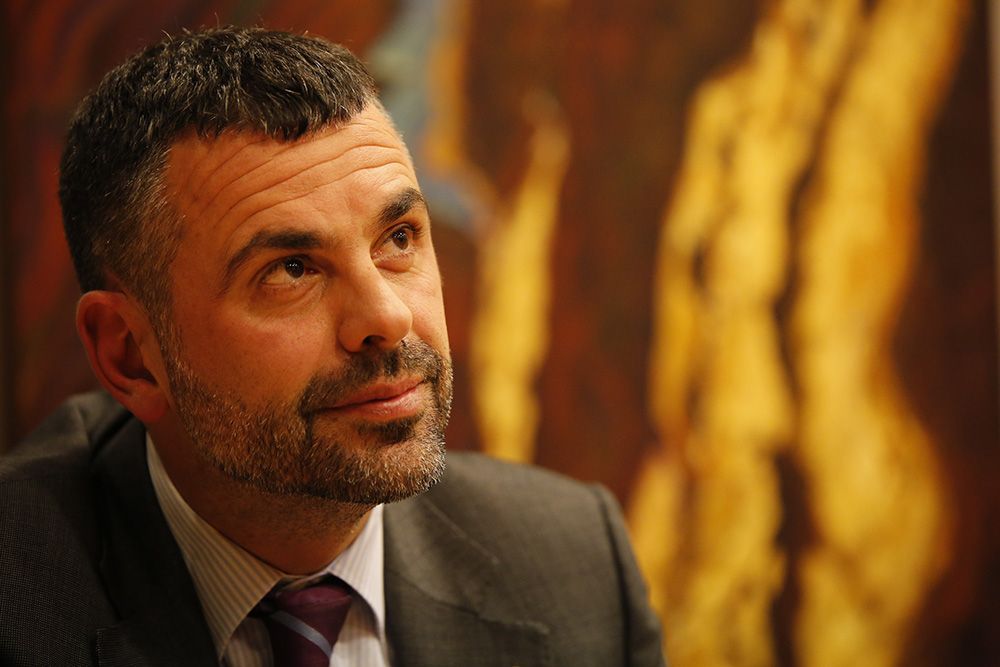
Santi Vila
Minister of Enterprise and Knowledge
Defence lawyer: Pau Molins
Accusations and sentences demanded
Public prosecutor: Disobedience, misuse of public funds. 7 years' jail and 30,000 euro fine.
State solicitor: Disobedience, misuse of public funds. 7 years' jail.
Vox: Disobedience, criminal conspiracy, misuse of public funds. 24 years' jail.
Prosecutors' arguments:
Vila, along with the other members of the government, made the decisions to carry out and organize the referendum, disobeying judicial orders and using public funds illegitimately for this.
Vila spent one night in prison before he was able to post bail.
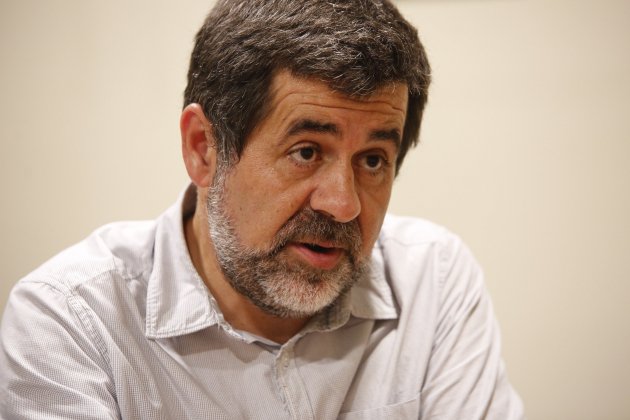
Jordi Sànchez
Former president of the Catalan National Assembly (ANC)
Defence lawyer: Jordi Pina
Accusations and sentences demanded
Public prosecutor: Rebellion. 17 years' jail.
State solicitor: Sedition. 8 years' jail.
Vox: Rebellion, criminal conspiracy. 52 years' jail.
Prosecutors' arguments:
Jordi Sànchez and Jordi Cuixart are the defendants who have been in jail longest: since October 16th, 2017. They are also considered as "organizers" by prosecutors, in their case with key roles in the social side of the process as leaders of the ANC and Òmnium Cultural civil groups, the pro-independence associations that allegedly played a "crucial role" as an instrument of pressure on the state. The accusations say that they had the job of maintaining "the strategy of growing and permanent mobilization" and their action was essential in the blockade of the Catalan ministry of the economy on September 20th, 2017, when it is claimed they prevented the action of the judicial committee that was searching the building. This is alleged by prosecutors to have been an action directed and permitted by the Jordis, who are also accused of encouraging the public to occupy voting centres on referendum day to prevent police action.
Sanchez was elected as a deputy for JxCat in the Catalan parliament in December 2017 and became a candidate for the Catalan presidency, but was unable to go to parliament for the investiture vote because he was in jail. He resigned from his parliamentary seat on March 21st last year.
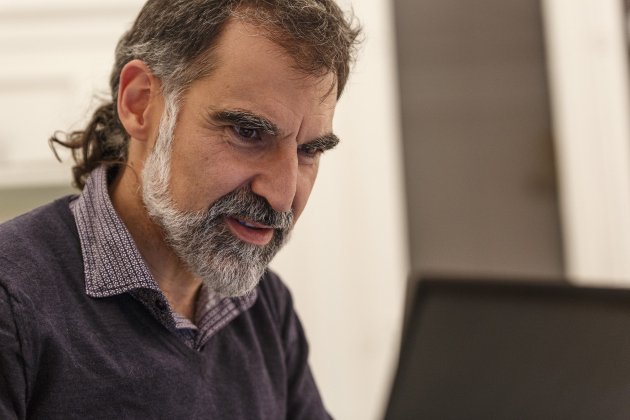
Jordi Cuixart
President of Òmnium Cultural
Defence lawyer: Marina Roig
Accusations and sentences demanded
Public prosecutor: Rebellion. 17 years' jail.
State solicitor: Sedition. 8 years' jail.
Vox: Rebellion, criminal conspiracy. 52 years' jail.
Prosecutors' arguments:
Along with Jordi Sànchez, Jordi Cuixart is considered as an "organizer" by prosecutors, both having played key roles in the social side of the process as leaders of the ANC and Òmnium Cultural civil groups, the pro-independence associations that allegedly played a "crucial role" as an instrument of pressure on the state. The accusations say that they had the job of maintaining "the strategy of growing and permanent mobilization" and that their action was essential in the blockade of the Catalan ministry of the economy on September 20th, 2017, when it is claimed they prevented the action of the judicial committee that was searching the building. This is alleged by prosecutors to have been an action directed and permitted by the Jordis, who are also accused of encouraging the public to occupy voting centres on referendum day to prevent police action.
"The Jordis", Sànchez and Cuixart, are the defendants who have been in jail longest: since October 16th, 2017.
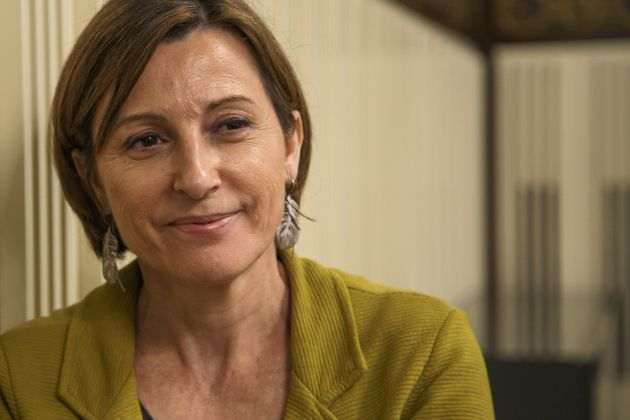
Carme Forcadell
Speaker of the Catalan Parliament
Defence lawyer: Olga Arderiu
Accusations and sentences demanded
Public prosecutor: Rebellion. 17 years' jail.
State solicitor: Sedition. 10 years' jail.
Vox: Rebellion, criminal conspiracy. 52 years' jail.
Prosecutors' arguments:
As the maximum representative of legislative power in Catalonia, she is also classified as an "organizer" in the accusations. Under her speakership, the Board of Parliament allowed Parliament to consider the initiatives which, on September 6th and 7th, would eventually become the "laws of disconnection from the state". She is also accused of allowing the parliamentary vote - completely rejected by the opposition - on the declaration of independence and the start of a constituent process for the new republic.
Who are the defence lawyers?
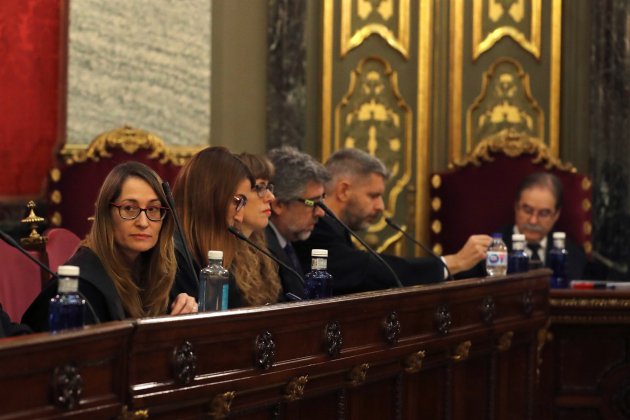
Eight main defence lawyers, plus their teams, from prestigious Barcelona firms are preparing for the case of their lives. Whilst they're trying to maintain an image of unity in the face of the charges their clients face, each team has its own strategy, from the most technical to the most ideological.
Those aren't the only differences: some of their clients are in pretrial detention, some aren't; some are still active in politics, some aren't; some agree with their clients politically more than others.
Andreu Van Den Eynde represents Junqueras and Romeva. One of the youngest of the lawyers, he's an expert in cybercrime and the penal responsibility of legal entities. He's been involved in the case since the start: Van den Eynde represented Forcadell in the earliest stages and was present during the searches of the Catalan economy ministry on 20th September 2017 representing Junqueras' number two.
Jordi Pina represents Turull, Rull and Sànchez. He's possibly the most media-friendly of the lawyers, having become known for his firm defence of the defendants' innocence and his attacks against senior judges. He's experienced with cases involving politicians having worked on a number of corruption trials. Pina also defended former education minister Irene Rigau in the trial for the unofficial 2014 referendum.
Xavier Melero represents Forn. He stands out among the lawyers for having, 15 years ago, having attended the first meetings of the party that would become Ciudadanos, today the polar opposite of the independence movement. Like Pina, Melero is no stranger to representing politicians in court. Indeed, he was counsel for former president Artur Mas in that same trial after the 2014 referendum.
Olga Arderiu represents Forcadell. Reserved and discrete, she is one of the lawyers, including Van den Eynde, who have set up their own companies. She has great experience in domestic violence cases and public policy on gender.
Marina Roig represents Cuixart. Like Arderiu, she tends to avoid the media, and has also been a founding partner in a legal firm. This will be her first case in the Supreme Court having mainly handled money laundering cases and what are known in Spanish law as "crimes against the public administration". Her strategy is targetted at a future review of the case by the European Court of Human Rights and arguing the right to self-determination.
Mariano Berges represents Bassa. One of Roig's founding partners, his prior experience has been mostly defending large corporations and multinationals. He's also an associate lecturer in criminal law at the University of Barcelona.
Josep Riba represents Mundó. He has years of experience defending politicians, businesspeople, bankers and sportspeople (including the footballer Samuel Eto'o).
Judit Gené represents Borràs. Having met Melero in a previous office, they set up a firm together in 2009 which has made a name for itself defending Catalan politicians accused of corruption.
Pau Molins represents Vila. A member of the Catalan bourgeoisie, from one of Spain's richest families, he set up his own firm in 1994. This list of clients he has represented includes former president of FC Barcelona Sandro Rosell, former Spanish minister and president of the bank Catalunya Caixa Narcís Serra and even infanta Cristina.
Who are the judges?
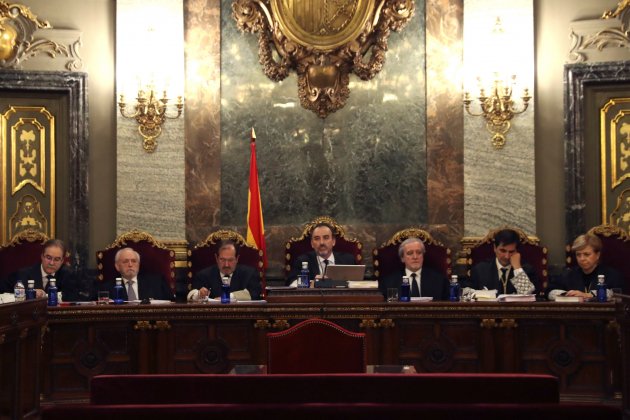
The seven judges, with an average age of 63, bring much experience between them to the courtroom. They include the Supreme Court's longest-serving criminal judge, the Supreme Court's current president, a historic founder of a progressive judges' association and the first woman to sit in the chamber to hear the case.
Before Christmas, the panel's composition was on the verge of changing, as president Manuel Marchena (centre, above) was to have been nominated to head the General Council of the Judiciary in a frustrated pact between PP and PSOE. After the alleged plan became public, the judge renounced the possibility. He had been in the headlines earlier in 2018 when his daughter won a coveted place to study to become a public prosecutor in unclear circumstances.
The judges are, from left to right in the above photograph: Andrés Palomo, Luciano Varela, Andrés Martínez Arrieta, Marchena, Juan Ramón Berdugo, Antonio del Moral and Ana Ferrer.
Who are the prosecutors?
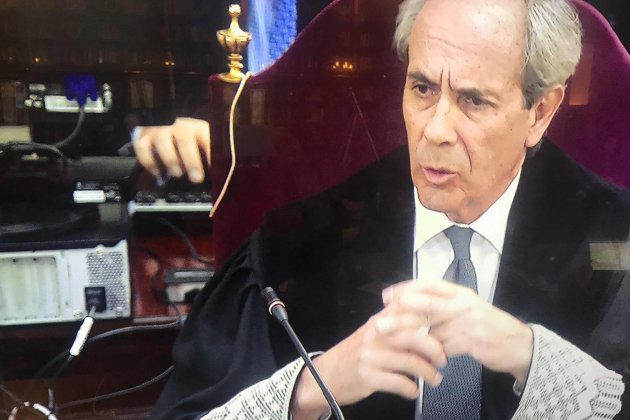
There are three separate prosecutions against the defendants. The principal of these is conducted by Spain's Public Prosecution Service. Under Spanish law, other prosecutions are able to proceed in parallel, making their own cases to the judges, and in this trial there are two: that of the State Solicitors, who are the direct legal representatives of the Spanish government; and a private prosecution, which has been conducted by the political party Vox - the far-right group which has become a significant force on the Spanish political scene in recent months and whose presence in the case has already given the party a significant loudspeaker.
Until November last year, all three prosecutions were pursuing charges of rebellion as their principal accusation in the case, leading to controversy and accusations of politicization, due to the apparent lack of any evidence for the "violent and public uprising" which is a necessary part of the definition of rebellion. However, shortly before the presentation of accusations, the State Solicitors dropped the rebellion charge from their case, replacing it with sedition, which speaks of a "tumultuous uprising" without specifically mentioning violence, and is punished with shorter sentences (up to 10 years, instead of the 25 years maximum which applies to rebellion).
The four Public Prosecutors who will be present in this case are Consuelo Madrigal, Jaime Moreno (pictured above), Javier Zaragoza and Fidel Cadena. The State Solicitors' sole representative at the trial is Rosa María Seoane. The private prosecution mounted by Vox is conducted by two lawyers who are leading members of the party: Javier Ortega, the party's secretary general, and Pedro Fernández, deputy legal secretary.

